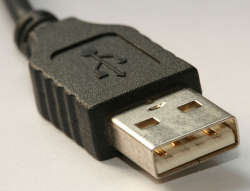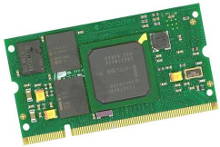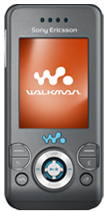The road to get a fully working and enabled mass-storage USB stack in Rockbox has been long and bumpy.
Bridge-Chip
Back in the early days of mp3 players, they all had bridge-chips which basically meant that the entire USB handling was handled by a dedicated chip that also “took control” of the hard drive (right, most of the interesting players used hard drives initially) so Rockbox didn’t have to do much except hand over control, show something nice on the screen in the mean time and then when the plug was pulled, regain control of the drive again and continue working.
But similar to how early players used dedicated HW-solutions to do music playback and then ditched that for pure CPU-powered solutions, the HW-solutions for USB also died out and all recent models do USB in software.
Research
The PortalPlayer chips being notorious for their complete lack of public docs were more or less considered impossibly hard to get USB working on by us. Until MrH came along 2006 and figured out that the USB parts of the PP5024 chip (used in the sansa e200v1 models) was identical to the USB core used by Freescale’s imx31 chip and there are public docs available for that.
Software Stack
The first step towards a software USB stack for Rockbox was taken in the 2007 gsoc, when Christian “austriancoder” Gmeiner took on the task. He went for a Linux-kernel inspired and quite ambitious approach that at the end of the gsoc project still didn’t quite work. The plan was at that point to primarily write a driver for the Sandisk Sansa e200 series, and secondary for other PortalPlayer based targets (such as ipods etc).
Made Working
Enter Björn “Zagor” Stenberg who had a much more minimalistic approach. Not being pleased with the “big” approach Christian had provided, the existing code was simply cut out and replaced with the new leaner version. Focus was then to get something small and simple to work, and then add fancier layers or features later on instead of providing the architecture for that already from the start. The stack started to partially work for mass-storage.
Not Yet Stable
USB wizard Frank Gevaerts joined the effort and worked fiercely on the thing and not only did he bring USB serial support (that does enable things like logf() support to debug rockbox) he also made the mass storage support almost reliable. The non-existing docs for the hardware made the remaining few flaws very hard to catch and the development of the stack stood still at this point for a great while.
Meanwhile, the USB stack could successfully be used on various new (in the Rockbox sense, these models are no longer new on the mp3 player market) targets like the Toshiba Gigabeat S and the Onda series etc. Parts of the Cowon D2 reverse engineering was greatly enhanced thanks to the USB stack as figuring out the FTL is even more tricky without a fine way to get data over to the host PC. All this proved that the stack itself worked nicely but that there were target-specific inits or setups that were missing for the PortalPlayer targets.
Of course the other new targets were not PortalPlayer based so it took efforts from clueful hackers like Vitja Makarov to implement the hardware driver for the TCC chips and Maurus Cuelenaere who did the driver for the Onda.
Stable?
Now, in 2009 our reverse engineering hero Boris “dreamlayers” Gjenero banged his head against the problem and by doing really nice disassembly he figured out previously not done initiation sequences. These have now been committed to the Rockbox SVN respository, and the early tests of this are very promising showing the mass storage support to be very close to get supported “out of the box” on the PortalPlayer 5022 based targets now. The PP5020 ones still seem unstable, and we have no support on the PP5002 ones.
If things just proceed this fine, we’ll be able to ship Rockbox’s own USB stack by default in the upcoming 3.2 release!
Commit
At Wed, 25 Feb 2009 23:40:15 +0100, the USB code was enabled in the SVN code: “Enable USB mass storage on PP5020, PP5022 and PP5024 targets”

Updates: this post was updated several times to gain accuracy and truths pointed out to me by Dave Chapman, Björn Stenberg, Frank Gevaerts, Jens Arnold and others. Thanks!
 board, and it has only one full featured RS232 (FFUART) and I’m about to move things over to the lesser featured BTUART.
board, and it has only one full featured RS232 (FFUART) and I’m about to move things over to the lesser featured BTUART.


